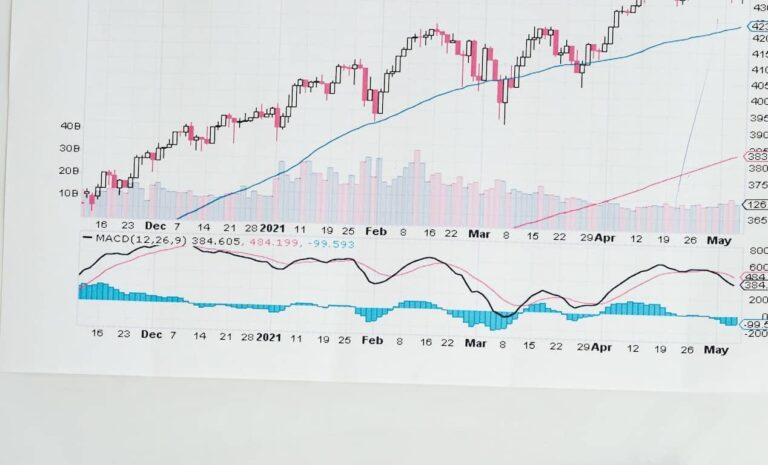A dividend is a distribution of a company’s earnings to its shareholders, determined by the company’s board of directors. It serves as a way for companies to share their profits with investors who own shares of their stock. Companies typically pay dividends on a quarterly basis and distribute them to shareholders in the form of cash or additional shares of stock.
The dividend yield is a key measure used to assess the attractiveness of dividends. It represents the dividend payment per share as a percentage of the company’s stock price. A higher dividend yield indicates a greater return on investment in the form of dividends. Investors often look for stocks with solid dividend yields as they provide a regular income stream.
Table of Contents
Types of dividends
- Cash dividends: Payments made in the form of cash to shareholders;
- Stock dividends: Additional shares of stock distributed to shareholders instead of cash;
- Special dividends: Extraordinary one-time payments made by a company, often due to exceptional profits or events.
Purpose of dividends
- Rewarding shareholders: Dividends serve as a way to acknowledge and compensate shareholders for their investment in the company;
- Sharing profits: By distributing dividends, companies share a portion of their profits with shareholders, allowing them to participate in the business’s financial success.
Important dividend dates
Dividend payments adhere to a specific sequence of events, and the corresponding dates hold significance in determining which shareholders are eligible to receive the dividend payment.
- Announcement date: This is the date when a company’s management announces the dividend. It is also known as the declaration date. The announcement must be approved by the shareholders before the dividend can be paid;
- Ex-dividend date: The ex-dividend date is crucial for determining dividend eligibility. If a stock has an ex-dividend date of, for example, Monday, May 5, then anyone who purchases the stock on or after that day will not qualify to receive the dividend. Only shareholders who own the stock before the ex-dividend date, typically one business day prior, will be eligible for the dividend;
- Record date: The company sets the record date as the cutoff date to determine which shareholders qualify to receive the dividend. Shareholders listed on or before the record date will be entitled to receive the dividend payment;
- Payment date: On the payment date, the company credits the investors’ accounts with the dividend payment, which can be in cash or through other forms of payment based on the company’s dividend policy.
These dates play a crucial role in dividend investing as they help determine who qualifies for dividend payments. Investors need to be aware of these dates to ensure they meet the eligibility requirements and receive the dividends they are entitled to.
Read also: Pros and cons of investing in shares
How to buy dividend-paying investments
Investors have various options, such as stocks, mutual funds, and exchange-traded funds (ETFs), to buy dividend-paying investments. When considering individual stocks, investors can utilize the dividend discount or Gordon growth models to assess and value shares by relying on anticipated future dividend streams.
Investors can use the dividend yield factor to compare stocks based on their dividend performance. This metric represents the dividend as a percentage of the current market price of the company’s shares, allowing for easy comparison between investments.
In addition to dividend yield, another crucial performance measure is the total return factor. This factor takes into account not only the dividends received but also other gains like interest and increases in share price, providing a comprehensive view of overall returns.
Tax implications are an important consideration for dividend investments. Investors in higher tax brackets may prefer dividend-paying stocks if their jurisdiction offers zero or relatively lower taxes on dividends.
Tax rates on dividend income can vary by country, with some jurisdictions providing tax exemptions or lower rates. For instance, Greece and Slovakia have lower tax rates on dividend income, while dividend gains are tax-exempt in Hong Kong.
When purchasing dividend-paying investments, it’s essential to consider the investment vehicle, analyze dividend metrics such as dividend yield and total return, and take into account the tax implications based on the investor’s jurisdiction. This information helps investors make informed decisions and select investments that align with their financial goals and tax strategies.
Dividend-paying investments provide the potential for capital appreciation
Dividends play a significant role in investment strategies and can be attractive for investors seeking income and long-term wealth accumulation. Whether through stocks, mutual funds, or ETFs, dividend-paying investments provide a regular cash flow stream and the potential for capital appreciation. By understanding important dividend dates, such as the ex-dividend date and payment date, investors can optimize their eligibility for receiving dividends.
By incorporating dividend-paying investments into their portfolios, investors can benefit from the dual advantages of regular income and the potential for long-term growth. It is essential to conduct thorough research, consider individual financial goals and risk tolerance. And, consult with financial advisors to make informed decisions about dividend investing.
With the right strategies and a focus on sound dividend-paying assets, investors can unlock the potential for financial success and build a profitable investment portfolio.
Read also: Cognitive bias and financial choices: how our mind influences the investments we make












